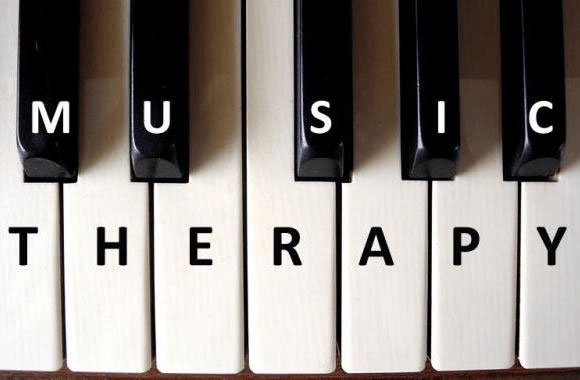EVER WONDERED WHAT WONDERS CAN MUSIC DO ?

Suffering from depression, insomnia, anxiety, stress or any other issues, music can heal. For most people, music is an important part of daily life. Some rely on music to get them through the morning commute, while others turn up a favorite playlist to stay pumped during a workout. Many folks even have the stereo on when they’re cooking a meal, taking a shower, or folding the laundry.
Music is often linked to mood. A certain song can make us feel happy, sad, energetic, or relaxed. Because music can have such an impact on a person’s mindset and well-being, it should come as no surprise that music therapy has been studied for use in managing numerous medical conditions.
All forms of music may have therapeutic effects, although music from one's own culture may be most effective. While classical music has been found to cause comfort and relaxation while rock music may lead to discomfort. Music may also be used in the classroom to aid children in the development of reading and language skills.
WHAT IS MUSIC THERAPY?
It is a technique of complementary medicine that uses music prescribed in a skilled manner by trained therapists. Programs are designed to help patients overcome physical, emotional, intellectual, and social challenges. Applications range from improving the well being of geriatric patients in nursing homes to lowering the stress level and pain of women in labor.
Music therapy effects positive changes in the psychological, physical, cognitive, or social functioning of individuals with health or educational problems. Music therapy is used for a wide variety of conditions, including mental disorders, developmental and learning disabilities, Alzheimer's disease and other conditions related to aging, brain injury, substance abuse, and physical disability. It is also used for the management of acute and chronic pain and for the reduction of stress.
- IN AUTISM: People who have autism spectrum disorders often show a high interest and response to music. This may aid in the teaching of verbal and non-verbal communication skills
- IN DEMENTIA: Music therapy has been found to reduce aggressive and agitated behaviour and also decrease the risk of heart or brain diseases.
- INCREASE WORKOUT ENDURANCE: listening to top beat workout tracks can boost physical performance and can increases endurance during exercise sessions.
- ENHANCE THE FUNCTIONING OF BODY: music helps in relaxing body functioning. Music tracks can ease pains and slow music produces a greater relaxation effect.
- IMPROVE SLEEP QUALITY: listening to some smooth and classical music can help in treating insomnia effectively.
- STRESS MANAGEMENT: music can trigger the biochemical stress reducers and these physiological processes act as anti-stress therapy.
- HELPS IN DEPRESSIVE STATE OF MIND: it can therapeutically help reduce feeling of loneliness and helplessness. It helps in relieving symptoms of depression.
- SURGERY: listening to music reduces stress and anxiety in patients before and after surgery.
- MEDITATION: calming music is for meditation and can help the mind slow down and feel relaxed. Nature sounds such as flowing or cascading water, birdsongs, rain, thunderstorms etc are used for releasing stressful thoughts.
Also helps in rehabilitation, mentally ill, terminally ill, women in labour, cancer patients and, many more…..
Want to release stress?, enhance mood? Or any other issue…. What are you waiting for, consult a music therapist right now. Click here.